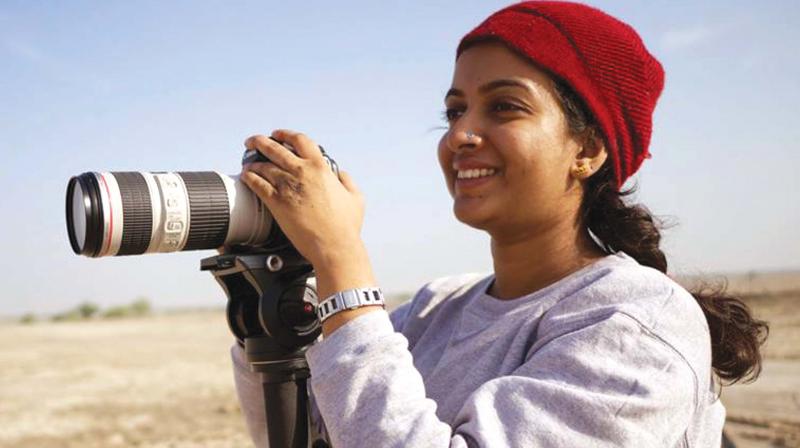Ground Zero of Salt Making
Survey Number Zero documenting the story of three women salt farmers at the Rann of Kutch, is up for competition at the IDSFFK.

It was October 2015, and the Films Division of India had just invited proposals from filmmakers to produce documentaries. With Gandhi Jayanthi around the corner, Priya Thuvassery heard everyone around her talk about the Father of the Nation. She had been yearning to make her new documentary, after the acclaimed My Sacred Glass Bowl, and all that Gandhi talk brought to her mind the Salt Satyagraha. She started reading more about it, finding out how Gandhi picked up salt as a symbol of protest and made the Rann of Kutch in Gujarat so famous. She realised how that same symbol now stands for a tragic tale of a bunch of farmers, called Agariyas, coming there every eight months of a year to produce salt. Priya found a women crew and went there to make a documentary, Survey Number Zero.
The documentary, shot over eight months through different stages of the salt production, will be screened at the 10th International Documentary and Short Film Festival of Kerala (IDSFFK) that begins in Thiruvananth-apuram this Friday. It will be under the competition category.
“As a film student, I used to get goosebumps just watching the documentaries made by PSBT (Public Service Broadcasting Trust). After that, the next option for funding came from the Films Division,” says Priya, working in the documentary feature department of NDTV, New Delhi, and having roots in Kozhikode.
When she first went for recce, it was monsoon time, and the farmers had all gone away to their villages. “They go to the Rann only for eight months, for the salt making. Rest of the time they go to their villages.” So she visited many families, heard them out, and thought of telling their problems through one family. “But then I stepped inside one home, and the silent women outside had suddenly changed body language. They became free, they asked me to take their photographs. They spoke to me in Gujarati and I replied in Hindi, but I could relate to these women so much.” So she decided to tell their story through three women, Hansaben, Bhawanaben and Pashiben – of three ages – through three stages of salt making: September, December, March.
Priya’s film opens with these lines: The Agariyas are traditional salt farmers in Gujarat’s Little Rann of Kutch. This huge 5000 sq km land has never been surveyed. In land revenue records, it is listed as: Survey Number Zero.
She found that they produce about 15 lakh tonnes of salt every year, but in 2015 the price of salt dropped from 28 paisa to 21 paisa per kilo. They protested for a month but then went back to their old lives. They have debts, agricultural loans, their children get no proper education and they have no proper health service. But they don’t complain. “Their dreams are small: to have a good bath, to buy a comb and comb hair every day.”

